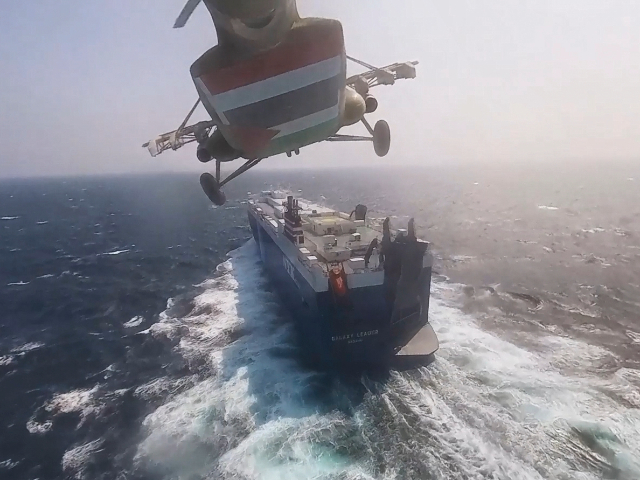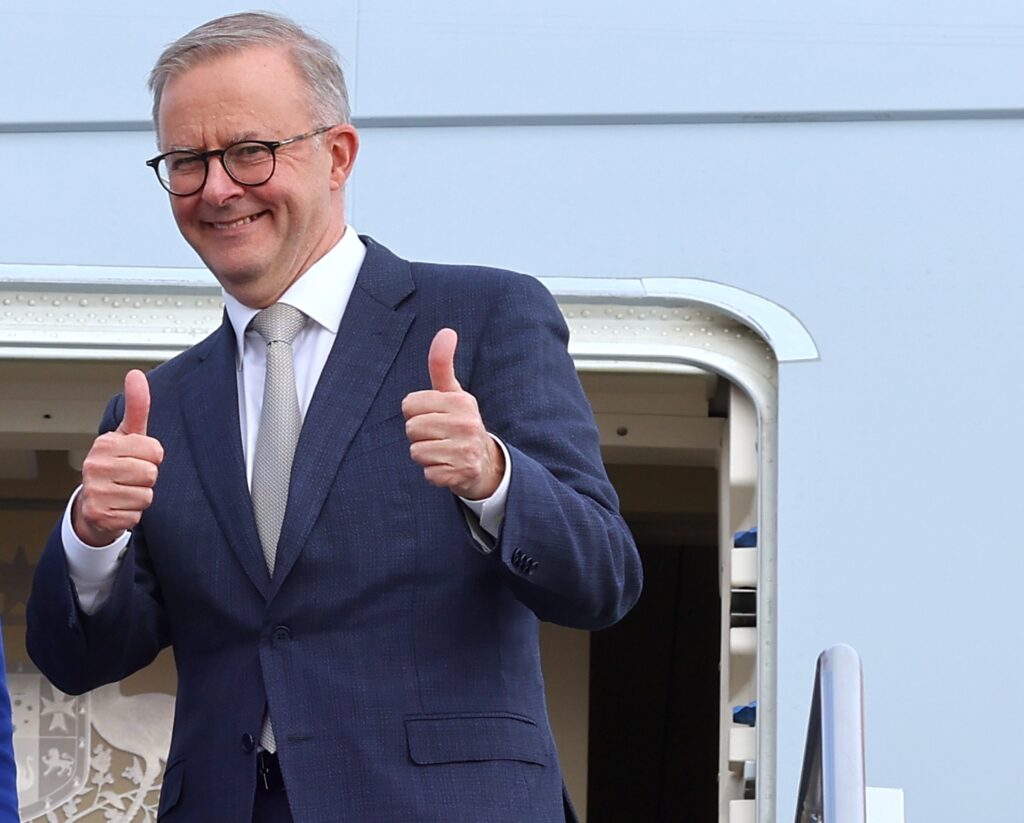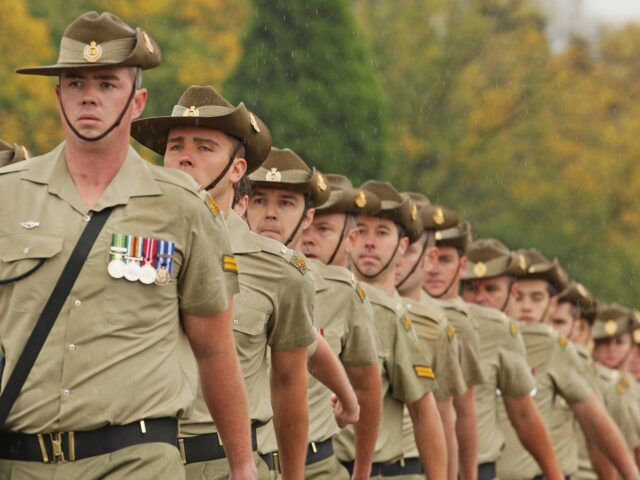A vital U.S.-led mission to protect cargo shipping in the Red Sea has been met with offers of warships and aircraft from across the international community desperate to work together to keep the key trade artery free of terrorist interference.
Australia’s left-wing Labor government announced Wednesday it will reject the direct request from its key U.S. ally for naval forces.
Instead it is sending 11 land-based military personnel sometime in the New Year.
Defense Minister Richard Marles said Australia needs to keep focused on the Pacific region as the reason for declining to join the rest of the world in the vital Red Sea efforts.
Canberra’s new isolationist stance has been 10-days in the making.
The United States announced this week that several nations are creating a force to protect commercial shipping from attacks by drones and ballistic missiles fired from Houthi-controlled areas of Yemen, as Breitbart News reported.
The Iran-aligned Yemeni Shiite jihadist terror organization, known more commonly as the Houthis, has vowed to block ships heading to Israel until the offensive on the Gaza Strip is ended and has been repeatedly firing missiles at merchant ships in the area.
The international response has been to send warships to counter the attacks, with the U.S., UK, Israel, and France leading the coalition forming the Combined Maritime Forces ready to fight back.
Other participants in the effort include Bahrain, Canada, Italy, the Netherlands, Norway, Seychelles and Spain.
Not so Australia which seems to lack the political will to answer the call to action with Prime Minister Anthony Albanese slammed as “weak” by critics who seem him retreating from the world stage.

A Houthi forces helicopter is seen approaching the cargo ship Galaxy Leader on Sunday, Nov. 19, 2023. Yemen’s Houthis seized the ship in the Red Sea off the coast of Yemen after threatening to seize all vessels owned by Israeli companies. (Houthi Media Center via AP)
Marles said the 11 military personnel would be sent in January to Operation Prosperity Guardian´s headquarters in Bahrain, where five Australians are already posted.
“We won´t be sending a ship or a plane,” he told Sky News television. “That said, we will be almost tripling our contribution to the combined maritime force.”
“We need to be really clear around our strategic focus, and our strategic focus is our region: the northeast Indian Ocean, the South China Sea, the East China Sea, the Pacific,” Marles added.
Australia is one of the United States´ closest military allies. Last week, the U.S. Congress passed legislation allowing the sale of Virginia-class nuclear-powered submarines to Australia under a security pact that includes Britain.
Marles rejected opposition lawmakers´ criticism that a failure to send a warship as the United States had requested made Australia a less reliable partner and ally.

Australia’s left-wing Labor Prime Minister Anthony Albanese has been labelled “weak” for refusing to offer a single warship to join the international coalition forming to protect shipping using vital Red Sea trade routes from terrorist attacks. (David Gray/Getty Images)
“That´s patently ridiculous,” Marles said.
Opposition defense spokesman Andrew Hastie called on Australia to send a warship.
“It´s in our national interest to contribute. If we want others to help us in a time of need, we need to step up and reciprocate now,” Hastie said.
Some 10 percent of the world’s good flows through the Red Sea, which spans the Bab el-Mandab Strait in the south to the Suez Canal in the north.
It’s one of the most valuable trade routes connecting Asia – including Australia – to vital European and North American markets.

COMMENTS
Please let us know if you're having issues with commenting.